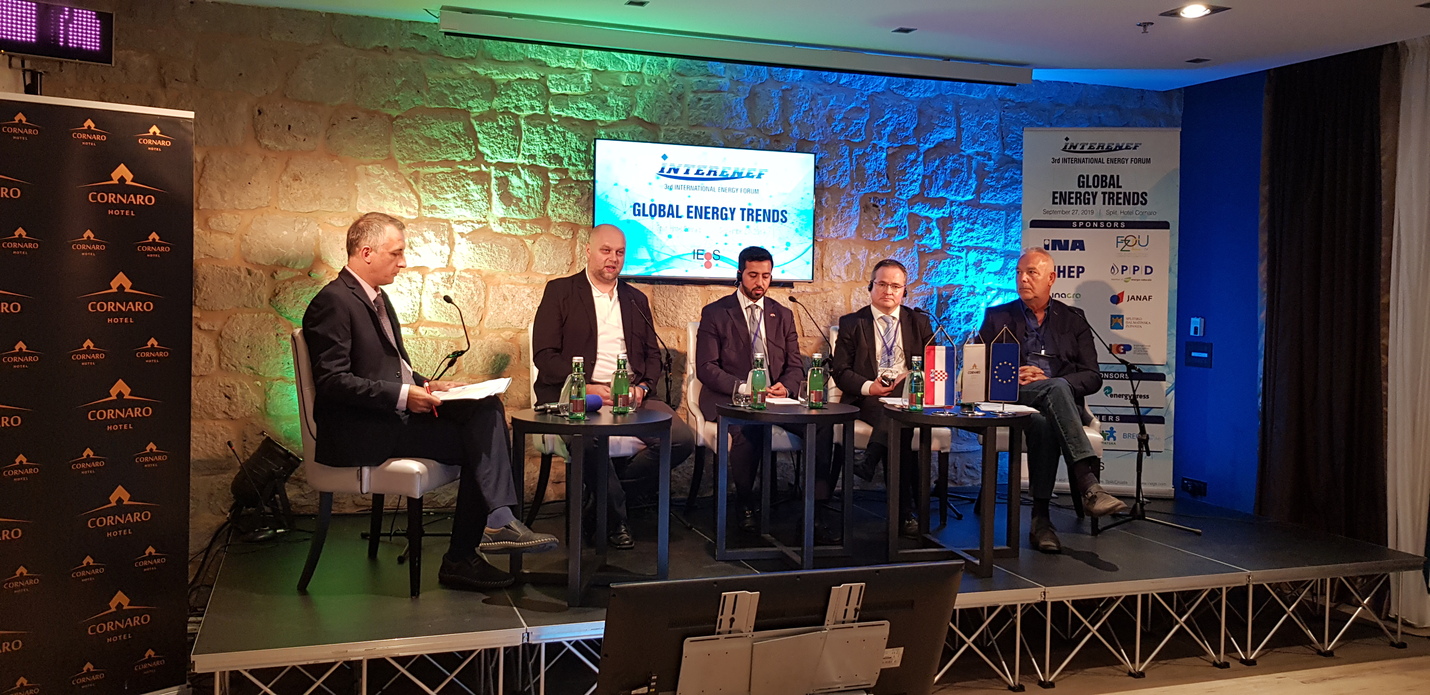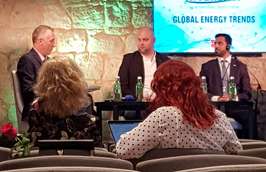27.09.2019.
The Forum gathered members of the business, political, and academic community, and the current energy issues were discussed in three panels. Frist, global energy trends and predictions were discussed, then the Three Seas Initiative and European energy trends, while the third panel tried to shed some light on the European and Croatian views on solar energy.
The global potential for solar energy use has significantly increased after the costs have dropped more than expected. “The Public Call of the Environmental Protection and Energy Efficiency Fund for co-financing rooftop photovoltaic power plants for family houses is still open. The interest of the citizens in this co-financing is high, indicated by a large number of received applications. The total of HRK 20 million has been allocated for solar energy generation, and this measure will allow the citizens to produce their own energy and achieve some sort of energy independence,” explained in the panel Mario Mihetec from the Energy Efficiency Sector of the Fund. The programme of co-financing for family houses covers the households connected to the power grid as well as those off the grid. Depending on the location, the citizens can be granted 40, 60 or 80 percent of co-financing for these systems and engineering oversight, i.e. up to a maximum of 75.000 kunas.
Solar power is the most popular source of energy in Europe, and by 2021, according to forecasts, 175,000 people in the EU will be working in the solar power industry. It is expected that by mid-2020s, solar power will become largely competitive owing to technological developments and stronger political support.
“In 2020, Croatia will take the presidency of theCouncil of the European Union for the first time, and I hope that it will focus on energy and the regions as priorities. Even though Croatia has been EU Member for five years and has seen significant results in achieving EU energy goals, and we would like to present the Brussels’ policy in these fields to the expert community in the region, because they are often not aware of everything that is going in the EU,” said the founder of the International Energy Forum, Anđelko Milardović, PhD.
Croatia, which imports 50% of the necessary energy, could develop by 2030 more than 3 000 MW capacity for generating solar power. The government has prepared the new energy strategy, completed in 2019, which will provide for reducing the import of energy. It is expected that the strategy will provide a stimulating and realistic support to the development of solar power.








